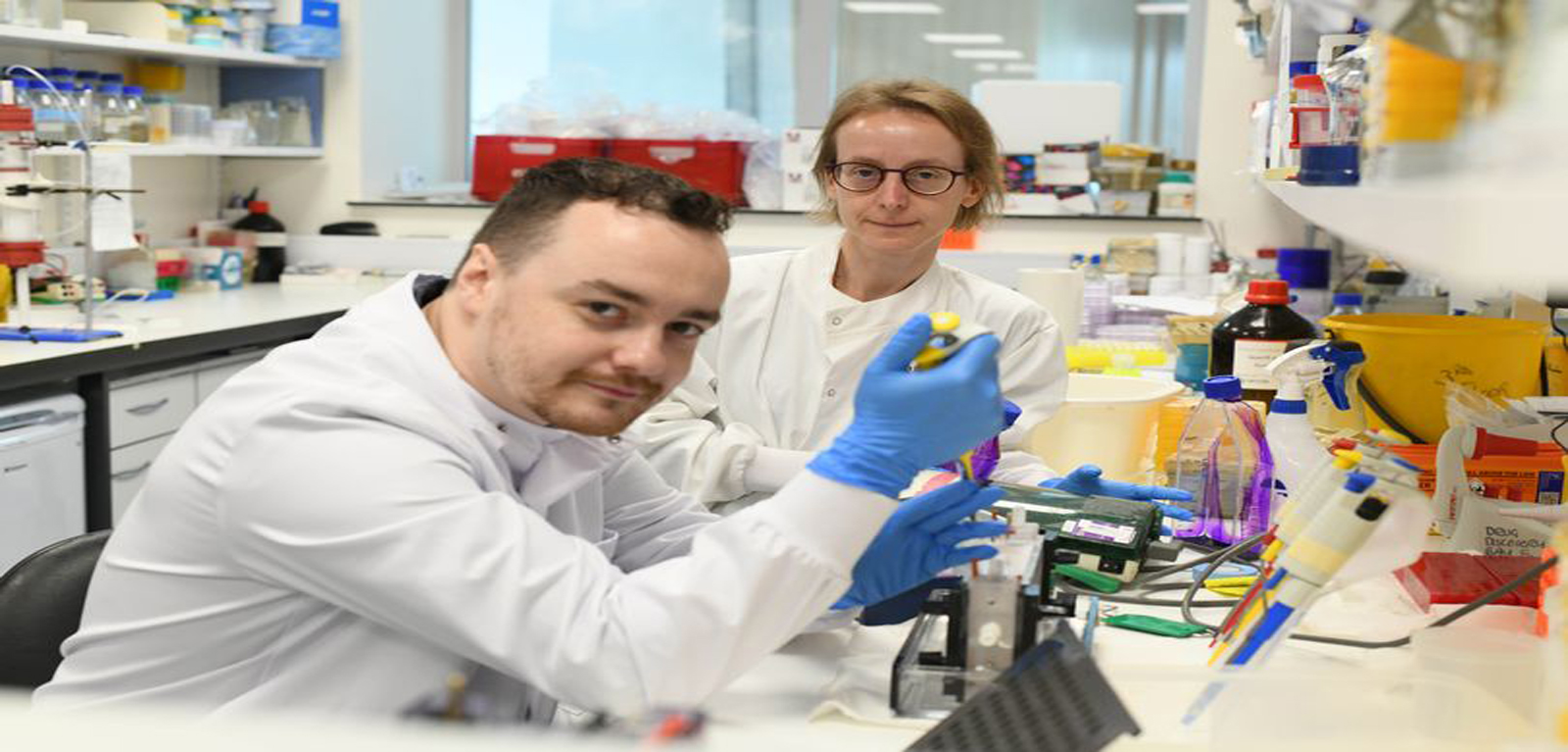QUEEN’S UNIVERSITY RESEARCHERS DISCOVER GROUND-BREAKING PROCESS WHICH DESTROYS BOWEL CANCER
Researchers at Queen’s University Belfast have discovered a ground-breaking therapeutic process that can target and kill bowel cancer cells, which may improve survival rates for bowel cancer patients globally.

The research, which has been published in the prestigious journal of Molecular Cancer Therapeutics, is deemed the first of its kind with the discovery of a novel treatment strategy for bowel cancer patients who originally present with an extremely poor survival outcome. The study compared two groups of bowel cancer patients one year post diagnosis. The first group were considered to be doing “well” and the second group had a poorer outcome.
The ground-breaking discovery was led by Dr Nicholas Forsythe, Lead Researcher at The Patrick G Johnston Centre for Cancer Research at Queen’s, along with Dr Sandra Van Schaeybroeck and the late Professor Patrick Johnston, who was Vice-Chancellor at the University from 2014-2017.
Funded by the late Chancellor of Queen’s University Belfast, through The Tom Moran Scholarship, the three year research project looked specifically at “gene signatures” to identify whether the stress-response pathway of a specific bunch of cells, called unfolded protein response (UPR), could be a potential novel target for the treatment of a group of bowel cancer patients. These were patients with a poor survival outcome and/or those who are resistant to cancer treatments.
The research focused on BRAF, which is a human gene that encodes a protein called B-Raf. It is involved in relaying signals from the surface of the cell resulting in cell growth and survival. When mutated, the gene has the potential to cause normal cells to become cancerous.
Dr Forsythe, Lead Researcher at CCRCB at Queen’s said: “This research focused on an aggressive subgroup of colon cancers known as “BRAF mutants”. These cancers are not only extremely aggressive, but they do not respond well to conventional cancer treatments. Unfortunately this means patients diagnosed with a BRAF mutant cancer have a very poor prognosis. Our research has identified a cellular process that can be exploited in order to kill these cancer cells. Essentially, we can take advantage of the aggressive biology of these cancers and use it against them.
"The process we identified is known as the Unfolded Protein Response (UPR). In normal cells the role of the UPR is to help cells survive periods of stress. We observed that our cancer cells were under high levels of stress, due to growing much faster than normal cells, and they had “hijacked” the UPR in order to survive. Using a specific combination of drugs we were able to overload this process and stress these cells to a point where they could no longer survive, dying in a process known as apoptosis; a form of cell suicide.”
Dr Sandra Van Schaeybroeck, Lead Researcher at The Patrick G Johnston Centre for Cancer Research at Queen’s, said: “This mutated BRAF protein causes a “short circuit” within the cell, continually passing signals for growth even in the absence of signals from the cell surface. This results in uncontrolled cell division and survival.
"This research is good news for bowel cancer patients as further clinical trials investigating the effect of such agents could improve the survival outcome of patients with these BRAFMT colorectal tumours in Northern Ireland and beyond."
The Queen’s University researchers say the next step of this research is to explore novel drugs, which can ultimately change the survival outcome for these patients.
Media
All media inquiries to Sian Devlin Communications Officer at Queen’s University Belfast at s.devlin@qub.ac.uk or tel: 028 9097 5840.
